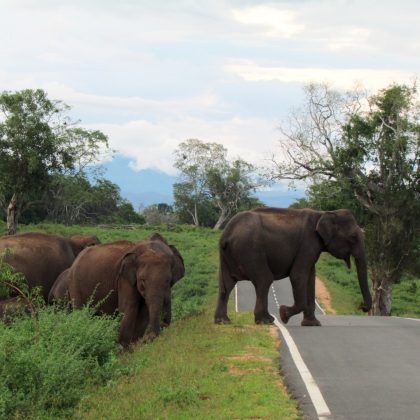What’s the problem with militarising anti-poaching efforts?
The latest EC Perspectives paper from Environmental Conservation is entitled The militarization of anti-poaching: undermining long term goals? by Rosaleen Duffy, Freya St.John, Bram Büscher and Daniel Brockington. In this blog Rosaleen Duffy discusses the research.
“The increasing calls for a more militarised and forceful approach to tackle poaching, especially of elephant and rhinos, demand more attention and interrogation. The recent rises in poaching prompted the London Declaration on the Illegal Wildlife Trade in 2014, which proposed a broad palette of action centred on anti-poaching, demand reduction and development of sustainable livelihoods. However, this vision is threatened by the growing calls for stronger armed responses to poaching and trafficking. We were inspired to write our Comment piece to open up much needed debate on the militarisation of conservation and its potential pitfalls. For us, a pressing concern is that calls for more forceful approaches have promoted some oversimplified ideas about poaching, which act as unhelpful diversions.
Poachers have been defined in simplistic terms, first as driven by poverty and secondly as linked to organised criminal networks, even terrorist networks. The problem with the poverty argument is that it is based on a narrow definition of poverty as merely material deprivation – but as we point out, poverty can also be about a lack of opportunity and the ability to shape one’s own future, and if we take a more expansive view then anti-poaching needs to be linked in with wider forms of development. We are also concerned about the growth of the idea that ivory is being used to fund international terrorism – notably Al Shabaab. This is a poorly evidenced claim, originating in an Elephant Action League report in 2012 – yet it has been repeated by a range of conservation NGOs, international organisations and even world leaders. The claims about the links between terrorism and ivory have the capacity to produce ineffective, or even counter-productive responses to both poaching and terrorism.
Moving forward, we need a much better understanding of how poverty and poaching are linked, how to approach demand reduction in effective ways and how local communities are responding to increased militarisation of anti-poaching. The calls for more forceful anti-poaching efforts focus on the short term, ignoring or even undermining long term approaches and gains. In the rush to tackle poaching in Sub-Saharan Africa, the need for long term efforts aimed at demand reduction in consumer markets in Europe, North America and especially in Asia is being overlooked. Equally, while more aggressive enforcement in supply countries may reduce poaching in the short term, it risks undermining local support for conservation in the very communities that successful biodiversity conservation relies on in the long term.”
Click here to read the paper in full for free.
All EC Perspectives papers are made freely available. Click here to read all EC Perspectives.

Ivory Carvings, photograph taken by Rosaleen Duffy







